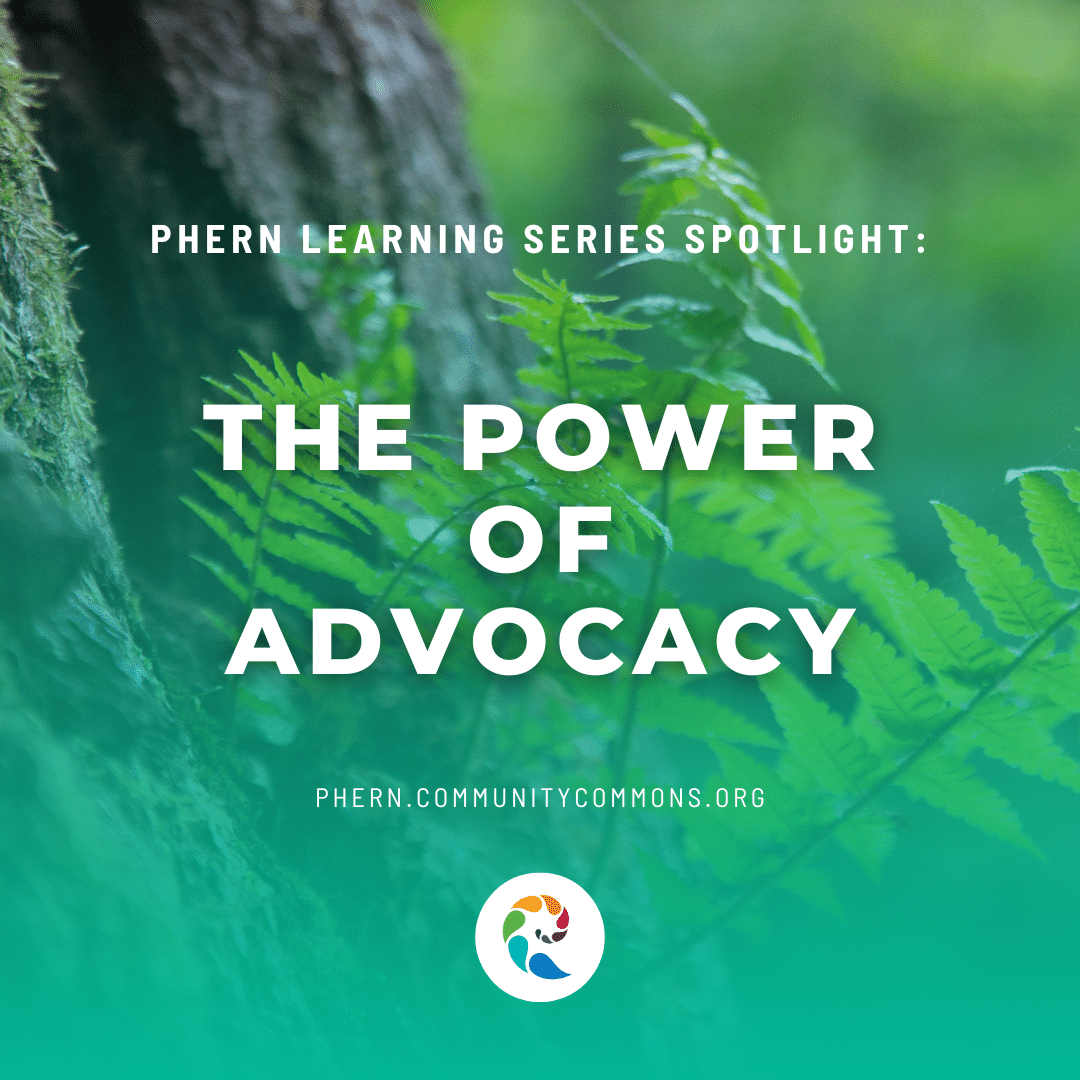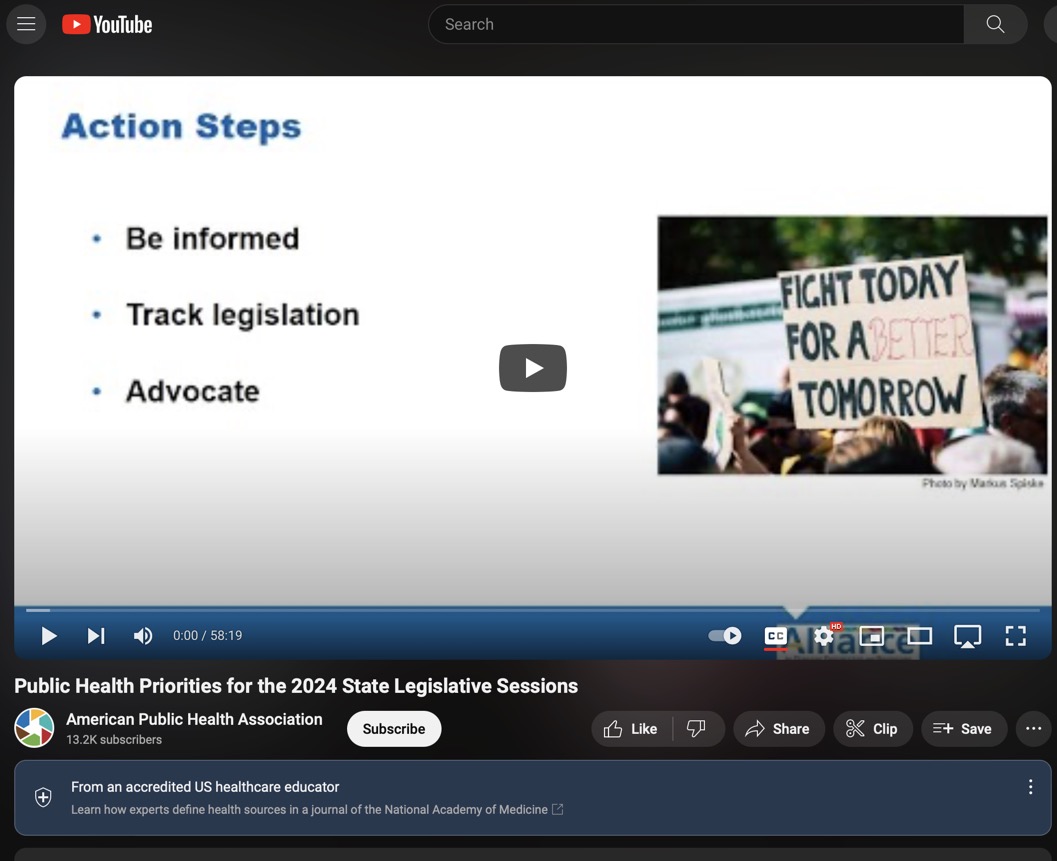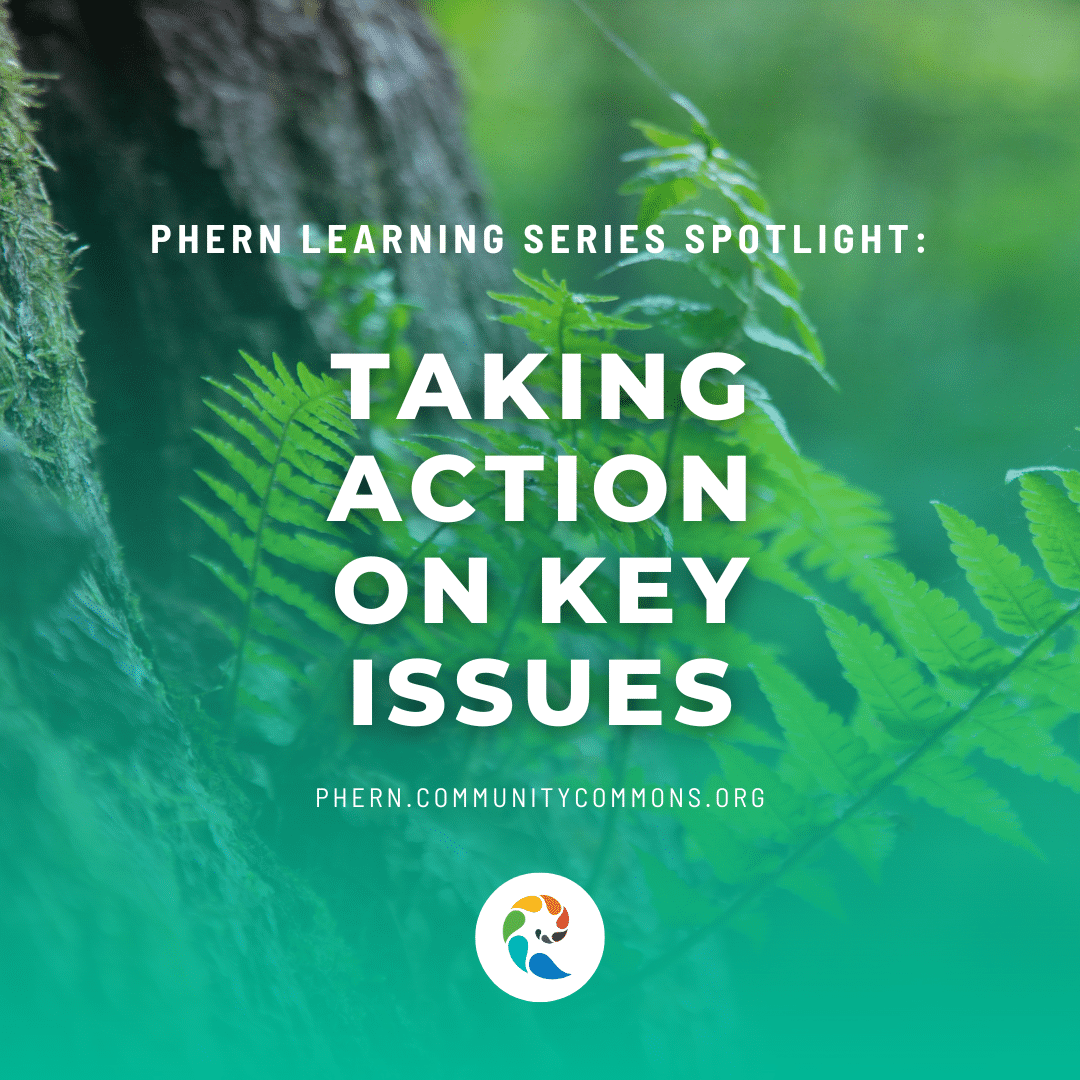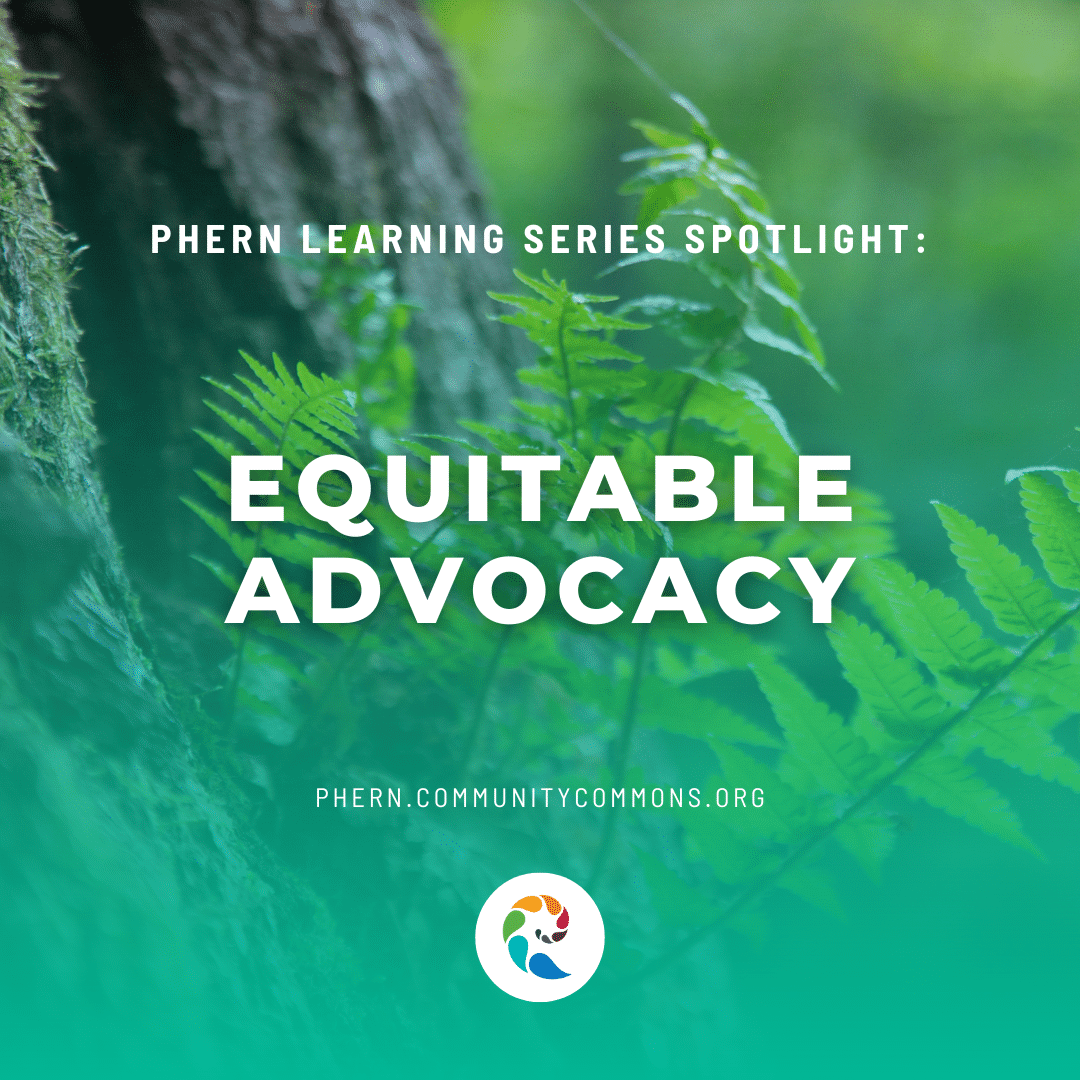Advocating for Public Health Authority
Protecting and expanding public health authority can help ensure an equitable, healthy future for all. When equipped with the tools and resources they need, public health officials can enact laws and policies that promote health and address inequities.
What is Advocacy?
Public Health’s vision is only achievable when the authority, ability, and funding are in place to act for the public’s health. This requires intentional and sustained advocacy. Advocacy is the means by which individuals or groups attempt to bring about social and/or organizational change on behalf of a health goal, program, interest, or population.
Public health advocacy takes many forms, including educating the public and informing elected officials about the importance of an issue, program, or need for funding. Advocacy can also include lobbying, where allowable, which is a strategy to persuade lawmakers to make a particular policy decision.
Advocacy is an approach by which you can help protect and expand public health authority and vital community conditions.
Advocating for Public Health
Public health advocacy seeks to advance policy solutions, shift practices, and catalyze investments. In recent years, passionate public health advocates have focused on pressing needs like law and policy solutions that protect public health, funding and workforce challenges, and are doing so with inclusive approaches that grow civic muscle and belonging.
Efforts to Strengthen Public Health Authority
Intentional and intersectional advocacy can be achieved through specific bills that directly strengthen authority, increase flexible funding, and call for community engagement. There have been many bright spots in public health legislation, practices, and investments since COVID-19 forced states to re-evaluate their public health landscape.
- Institutionalizing public health expertise in decision-making bodies;
- Growing capacity of public health infrastructure; and
- Expanding authority to local officials.
- Written explanation or justification for actions taken
- Public hearings or public comment; Provision of information; or
- Response to questions.
Adapted from Strengthening Public Health Authority to Contain and Prevent Communicable Disease
Further Reading
Issue-Based Advocacy
Attacks on public health authority do not exist in isolation. Rather, they are part of broader social movements that threaten democratic institutions, civil rights, and progress toward health equity and mutual liberation. For example, over the last several years we have witnessed attacks on LGBTQ+ people, transgender rights, and abortion rights. Advocacy on specific issues and policies that safeguard people’s rights and opportunities for well-being is crucial. Such advocacy not only protects individuals but also drives systemic changes on interconnected issues and long-term shifts in power dynamics, culture, and environments that profoundly influence our health.
Public health advocacy seeks to advance policy solutions, shift practices, and catalyze investments. In recent years, passionate public health advocates have focused on pressing needs like law and policy solutions that protect public health, funding and workforce challenges, and are doing so with inclusive approaches that grow civic muscle and belonging.
While the political will may not currently exist in some places to act effectively on public health authority or cross-cutting public health issues, advocates can, and do, find ways to make incremental progress. There may, for example, be opportunity and will to address certain specific issues that can pave the way for progress.
Anyone Can Advocate!
You can be an advocate for public health! Constituents who call and send emails to their representatives to highlight the importance of public health programs are just as critical as subject matter experts and professional lobbyists. Click a button below to explore how each group can advocate.
GUIDE FOR
State and Regional Affiliates
State and regional public health associations are important advocates for health and equity in their states and beyond. They: educate the public and policymakers; advocate for legislation that protects public health authority; engage in public health education and outreach campaigns; and build coalitions and collaborate to advance public health.
GUIDE FOR
Individuals and Community Residents
Individuals are the experts of their communities, and they are affected by state and local public health policies. They need a seat at every table, where their voices and perspectives can inform decision-making and ensure that public health policies are truly equitable.
GUIDE FOR
Students and Young People
Students and young people are powerful advocates at the forefront of social movements. Students can play a vital role in protecting public health by educating themselves about current issues, becoming advocates, and supporting organizations that are involved in this work.
Further Reading

Advocacy for Public Health

Public Health Advocacy: The Basics

Making the Case for Public Health

Community Tool Box: Advocating for Change
Equitable advocacy
Whether advocating for public health authority, the rights of specific priority populations, or policy matters, equity ought to be at the forefront. Centering the individuals and communities most impacted by issues can bring about policy solutions while aligning and building community.
Advocacy makes visible what public health does for communities, neighborhoods, health systems, and individuals, further emphasizing the importance of the work. With a public health sector that is sustainably funded and entrusted with the authority and data tools to promote health and prevent disease, communities can thrive and grow.
Reflection Questions
- What is a state level example of how public health authority is being strengthened?
- What is advocacy? Describe two opportunities to advocate for public health authority.
- How do The 5 W’s of Practicing Equity as a Central Part of Advocacy support equitable advocacy approaches?
-
This concludes the learning series. Return to previous chapters or return to the start.








